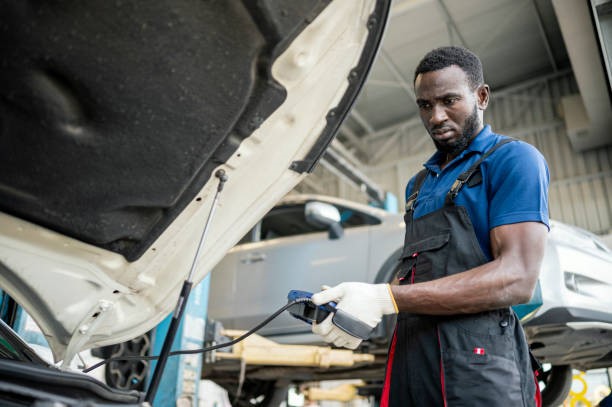Low-Grade Vehicles Call for High-Quality Reconditioning

Article Highlights:
- CarMax is hiring 1,800 production workers to handle reconditioning.
- Move vehicles from department to department automatically.
Automotive News recently published an article discussing why dealerships are sourcing lower-grade used vehicles to fill their lots. With the inventory shortage still plaguing the market, dealers are having to cast a wider net. These vehicles naturally need more time to go through the recon process, so how is the industry handling these new reconditioning hurdles?
CarMax’s Solution
CarMax has chosen to hire 1,800 production workers across their 222 stores to speed up the reconditioning process. You likely aren’t going to this level of expansion in your dealership, so what are your plans to compete? The article recommends dealers create a separate reconditioning process for lower-grade cars, and implement a tool to track efficiency. Adding technology to the process will help speed it up, especially for vehicles in worse condition than what your dealership is used to. Before choosing a reconditioning software to put in your dealership, you need to consider everything it needs to do for you.
Automate the Process
The reconditioning management system you choose for your dealership needs to be fully automated, but what does that look like exactly? A reliable management tool should move vehicles from department to department automatically as work is completed on the vehicle. Techs and production workers should not have to walk over to the manager to notify them when work is complete. A reliable management system will pass the vehicle on to the next department as soon as workers complete the tasks assigned to them.
Create a Consistent Lean Process
There is risk in selling a used car. Unresolved safety concerns can result in legal trouble from the consumer back to the dealer. Creating a consistent lean inspection process can eliminate risk and improve efficiencies. This is why having a reconditioning solution that has a customizable multi-point inspection tool is important. Best-in-class solutions will add specific repair items to specific failure points to improve both time and accuracy.
Track Every Detail
The right tool will track cycle times for every department that’s involved in the production process. It should also log each department the vehicle has touched, who did the work on it, and if there were any changes in pricing for parts or labor. Managers should be able to access this information so they can see where exactly any inefficiencies lie. This way, if vehicles are getting caught up in a certain department, your used vehicle manager can recognize it and help resolve the issue right away.
The Bottom Line
You’re going to need insight into every step of the production process to ensure profits on these lower grade vehicles. Transparency and efficiency in reconditioning will help you get your inventory front-line ready, and give you a competitive edge in this market. Improving the reconditioning process with these enhancements will help you get any used vehicle, regardless of condition, from acquisition to sale faster than before. Creating a more streamlined process will bring seamless, cross-departmental success free from delays, while increasing profits.
Related Articles:

The Future is Here, and It’s Powered by AI
The world changed forever in 1983. Most people weren’t ready for the internet revolution. In 2025, we’re on the brink of another technological revolution.

NADA 2025: Working in a Winter Wonderland
This year's show proved that the auto industry can handle anything. If you couldn't make it, find out what happened in the Reynolds booth.

NADA… the Catalyst for 2025: What’s Ahead for Reynolds
With the NADA show now behind us, take a peek at where Reynolds is headed this year.

Why Your Data Is Wickedly Underutilized
In today’s digital world, your data is your most valuable factor for success, especially your first-party data. But the thing is, there’s potential for it…















